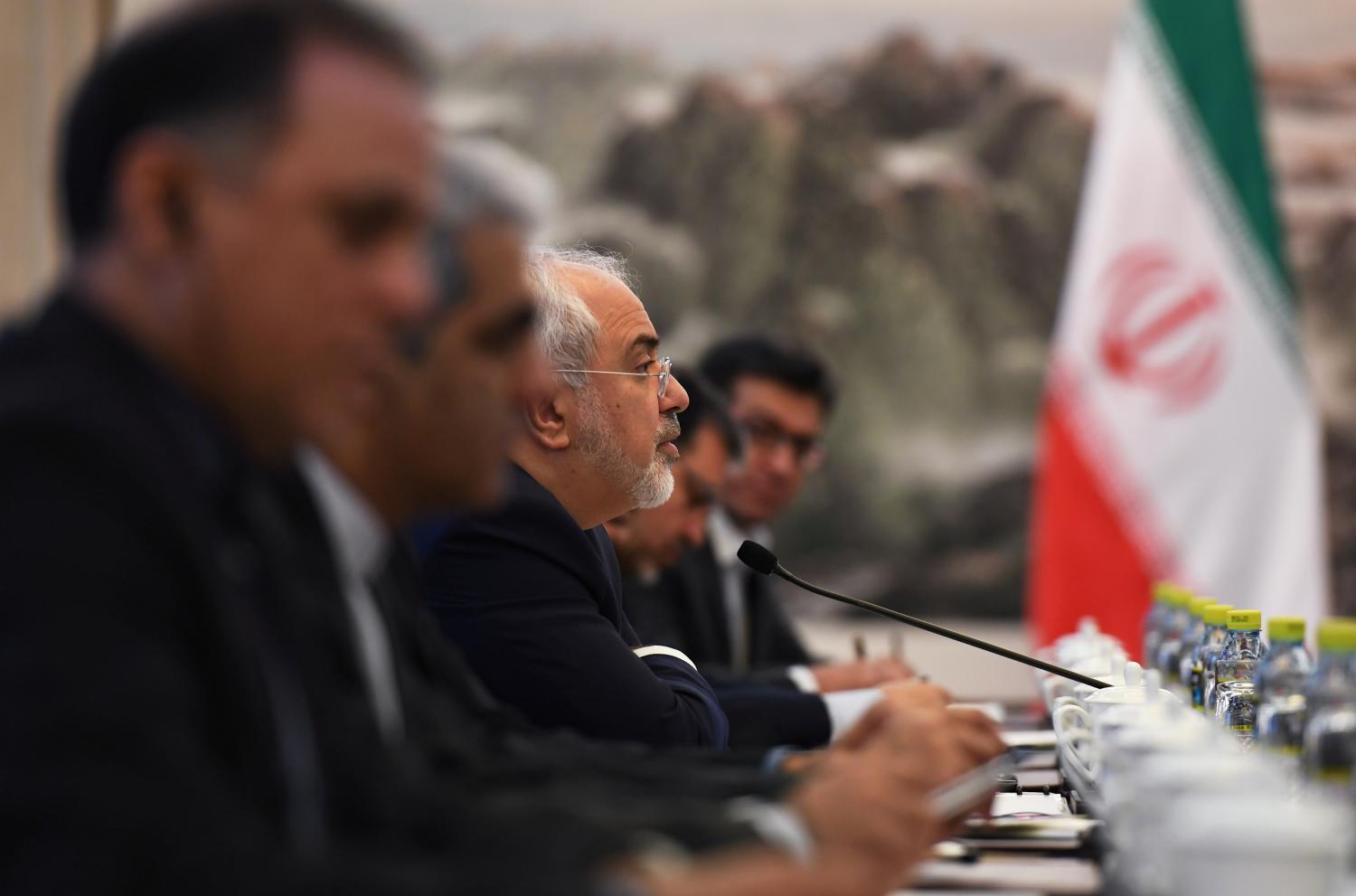The United States needed Russian support to conclude the Iranian nuclear deal. As U.S. President Barack Obama acknowledged, “we would have not achieved this agreement had it not been for Russia’s willingness to stick with us.” But with U.S.-Russian relations at their lowest point since the end of the Cold War, Russian support came as somewhat of a surprise, even to Obama. So, why was Russia willing to support an Iran deal that even the normally anti-American Russian media describes as Obama’s personal achievement?
As usual, the answer is far from simple and resides ultimately in the fevered mind of Russian President Vladimir Putin. Russian support for the negotiation process with Iran has been inconsistent and overall demonstrates some mixed emotions. From a narrow Russian perspective, the deal threatens to create yet another steady stream of oil and gas onto the world market at a time when depressed energy prices are already threatening the Russian economy. With that disadvantage in mind, the deciding factor was likely the Chinese one. The Chinese wanted the deal for their own reasons and Vladimir Putin, for all of his bluster, is in no position to resist them.
A checkered record
Russian Foreign Minister Sergei Lavrov was not shy in pointing out that without Russia the deal with Iran would not have happened. There is no evidence, however, that his occasional visits to the negotiations in Vienna, Lausanne, and Geneva actually helped in hammering out even a single compromise. To the contrary, there is much to suggest that Moscow sought to complicate—if not undermine—the P5+1 position at several delicate moments in the negotiations:
- In mid-November 2014, Russia announced a large deal with Iran to construct two additional reactors at the Bushehr nuclear power plant with an option for six more reactors. The November 24, 2014 deadline at the Vienna talks was duly missed.
- In mid-April 2015, Russia announced the lifting of the unilateral ban (set in 2010) on delivering S-300 surface-to-air missiles to Iran. This move came too late to upset the April 2 provisional framework agreement signed between the P5+1 and Iran. But it encouraged Iran to take a more assertive stance at the start of the Vienna talks on the Joint Comprehensive Plan of Action.
- In early June 2015, Russia announced that the long-discussed oil swap deal with Iran would progress to implementation within a week. The June 30 deadline in the Vienna talks was duly missed.
Amid these attempts at disruption and the almost daily deterioration in U.S-Russian relations, the need to secure Moscow’s passive acceptance of a deal with Iran created some clear challenges for the Obama administration. Even as several high-ranking U.S. military commanders asserted that Russia constituted an “existential threat” to the United States, the White House sought to nuance this declaration. The administration emphasized Putin’s readiness to “compartmentalize” and preserve areas of cooperation. The logic of the top brass’ assessment is impeccable regardless of cooperation on Iran. If Russia is recognized as a “revisionist power” and a security challenge on par with the Islamic State (and even—to much consternation in the Kremlin—with the Ebola epidemic), it constitutes a threat to the European security system and to U.S. allies. Since Russia possesses a huge nuclear arsenal, this threat is inevitably existential.
Russia’s biggest concerns about the Iran deal are certainly not about the insufficient transparency of the nuclear program, but about the impact on energy prices. Tehran has indeed announced plans for doubling its oil exports, which is certain to add to the global over-supply. Rosneft and Gazprom, the Russian oil and gas monopolies, will not be able to benefit from the opening of the Iranian energy sector for business because Western majors have competitive advantages and superior technology. Even in the nuclear energy industry, Iran would probably be more interested in diversification than in executing the penciled contracts with Russia. Nor will Russia be able to quickly expand its arms exports because the embargo on advanced weaponry, despite Russia’s furious lobbying, is set to remain in place for several years.
The China syndrome
In the end, Russia did refrain from any unhelpful maneuvering in the decisive final stage of the negotiations. That probably merits mention, but it is material rewards that Moscow seeks to harvest.
But where will those rewards come from? Moscow understands that it will lose from the Iranian nuclear deal, but it cannot do anything about it because the main winner is certainly China. Beijing is ready to invest massively in oil and gas projects in Iran, and if the prices would slip to a lower level, so much the better for the energy-dependent Chinese economy.
The Chinese preference for striking the deal is probably the main reason behind Russia suppressing its temptation to spoil the Vienna negotiations. Having isolated itself from the West, Russia has effectively become reliant on its China patron for financing and for markets. Aware of this, Beijing is driving an increasingly tough bargain with a Russia that has fewer and fewer options. It is not likely to reward Russia’s cooperative behavior on Iran with generous loans or investments. In this moment of Russian diplomatic weakness, Obama and Kerry shouldn’t worry about finding any rewards for Russia either.
The Brookings Institution is committed to quality, independence, and impact.
We are supported by a diverse array of funders. In line with our values and policies, each Brookings publication represents the sole views of its author(s).





Commentary
The China factor in Russian support for the Iran deal
July 21, 2015